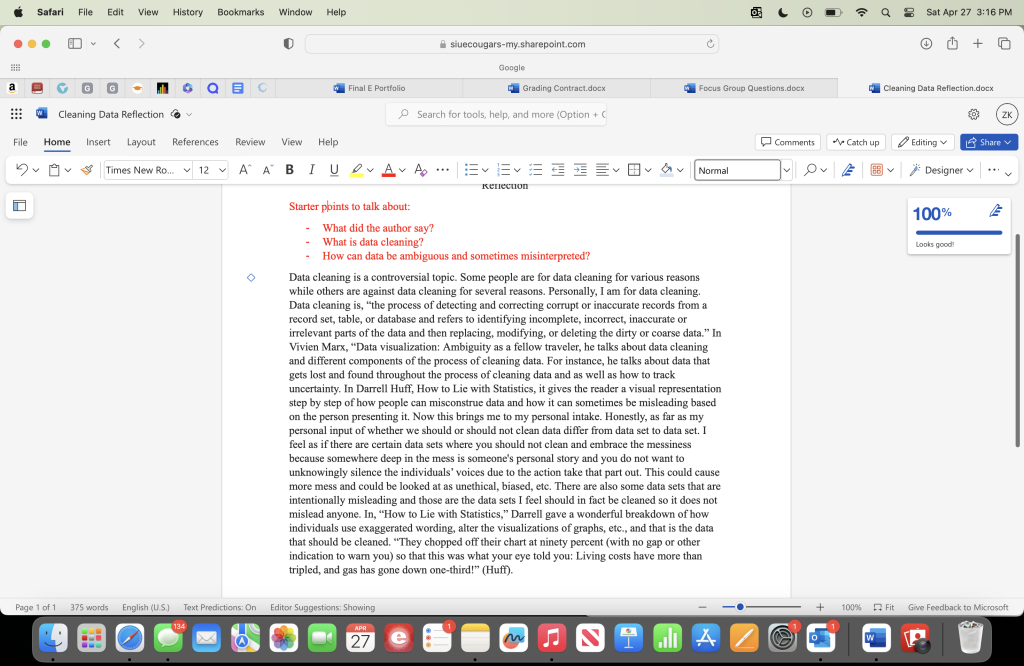Dear Dr. Smith,
During the second semester of CODES (Community Oriented Digital Engagement Scholars), I have learned a lot about not only skills I can apply in my research teams and CODES but also lifelong skills I can take with me outside of school. I learned more about myself and my strengths and weaknesses. My ability to comprehend more scholarly texts has improved my information literacy and my ability to sift through research and sources. There were certain times where I did not fully understand tougher texts because I could not differentiate between what was essential and what was not essential. Now, with learning how to annotate, it has helped my comprehension skills. The goal I excelled most at was pursuing knowledge and educational experience beyond the classroom. I can engage and hold meaningful educational talks and debates with my peers. As far as a goal I can keep working on is being able to skillfully test and validate constructed opinions and theories. To reach my fullest potential, I will continue to annotate and elaborate more upon certain pieces that I highlight.
5b. Information Literacy: Accesses information using effective, well-designed search strategies and appropriate sources (30%).
Reflection: On the necessary knowledge document for Dr. Jacks class, I have added sources for the whole class to look at. Before adding the links to the google document, I first made sure that the source was credible and had knowledgeable information that relates to the work being done in our research teams. These sources make meaningful conversations, and it really allows me and my peers to dig deep into social justice, etc.
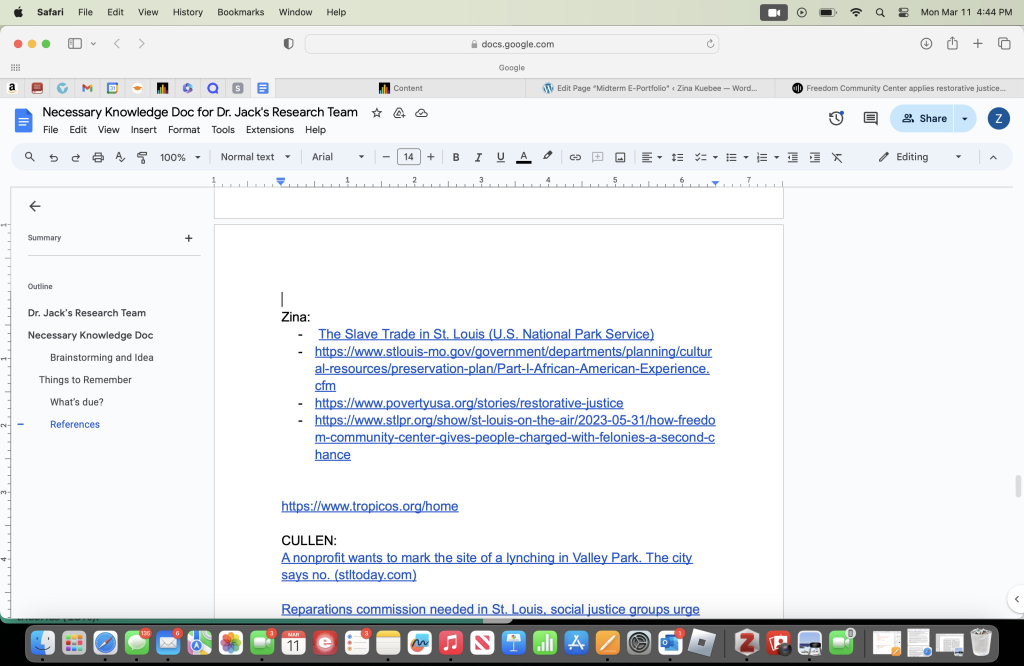
10a. Quantitative Literacy: Skillfully test and validate constructed opinions and theories (15%).
Reflection: This was a goal I wanted to obtain the most as it was something I struggled with. After this semester of CODES, I have been able to formulate my own opinions and ideas while also keeping the opposite sides opinions still voiced. I have reached this goal by annotating the texts I read and adding comments to the highlighted text.
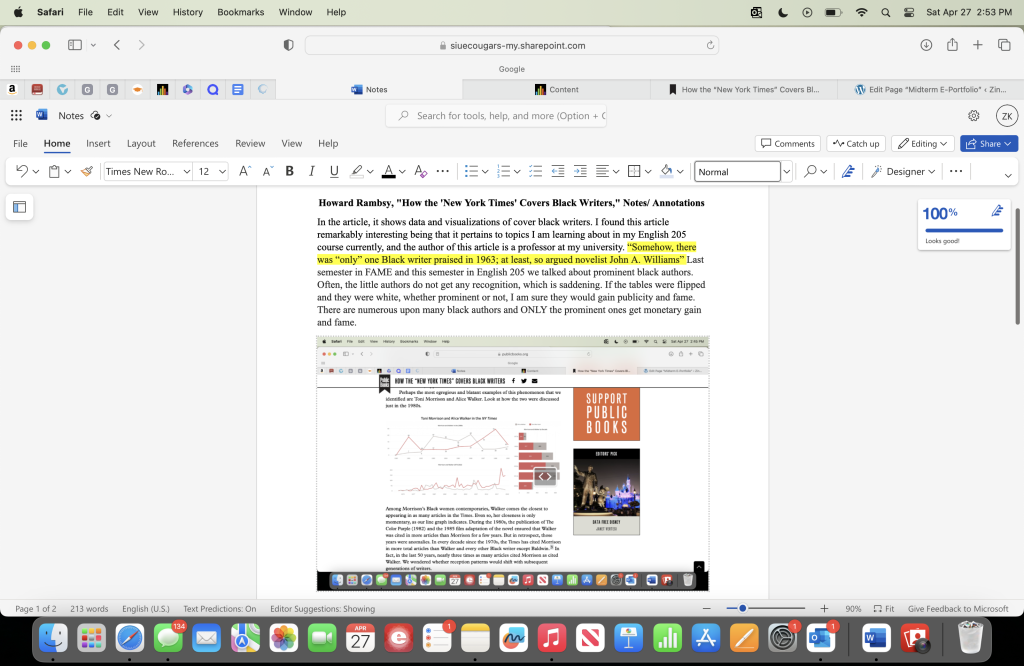
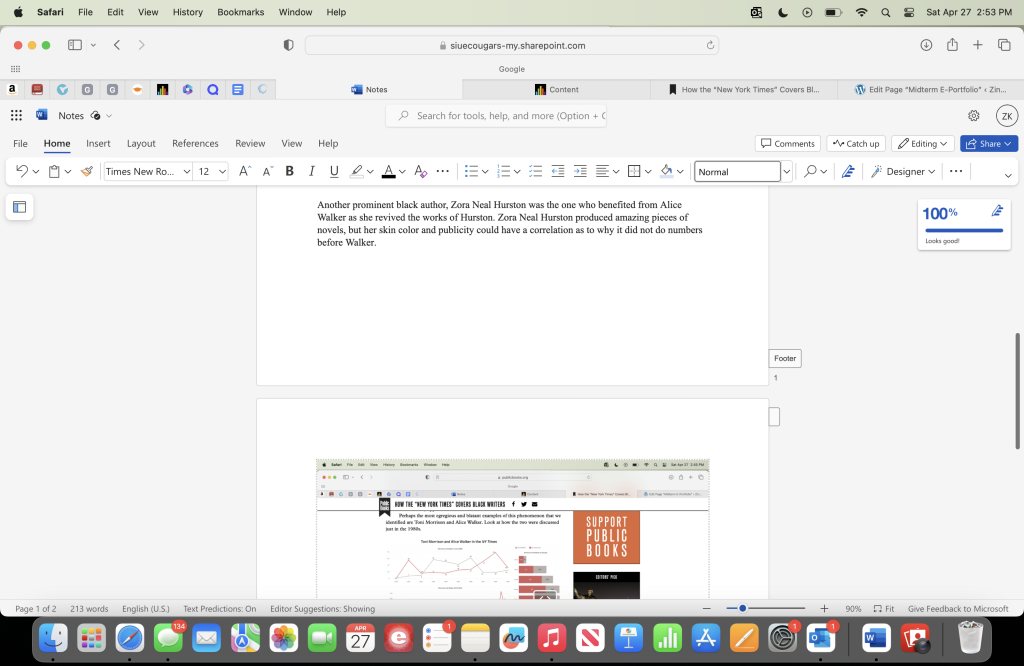
3a. Ethical Reasoning: Identifies and analyzes their core beliefs and reflects upon their origin (20%).
Reflection: In class we did ethnographies, and I went and observed individual patterns at Starbucks in the MUC (Morris University Center). Being that there are many people from diverse backgrounds, cultures, ethnicities, etc., when observing I made sure not to judge and question why one group of people interact differently than another group of people. To track their actions, I wrote down my observations while leaving assumptions and judgement out of the text.
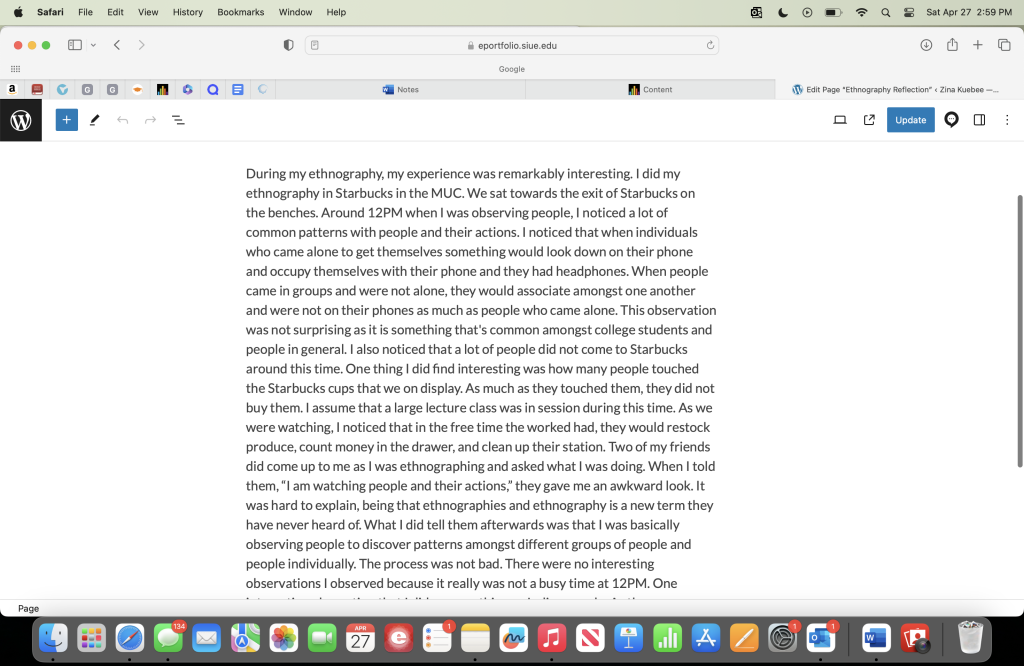
7b. Skills for Lifelong Learning: Pursues knowledge and educational experience beyond the classroom (15%).
Reflection: Reflection: To achieve my goal of pursuing knowledge and education experience beyond the classroom I have been making insightful and meaningful conversations in my criminal justice course. Some of the material covered in my criminal justice class is sometimes mentioned in conversations and lectures in CODES and vice versa, so when that happens, I voice those instances and make comparisons. During a lecture, my professor was talking about reparative justice, inequality, etc. When we were talking, I added the knowledge I had about the topic both good and bad and that was able to start a meaningful discussion amongst my classmates, my professor, and I which is appreciated. Unfortunately, I am unable to provide evidence due to policy violations.
9b. Problem Solving Skills: Identifies and evaluates multiple approaches for solving problems (20%).
Reflection: When I am reading and I must summarize and talk about key points, I struggle with that. One way I help myself is as I am reading, I type down key points that will help me better understand and summarize the text into a reflection. One text I struggled with was “Data visualization: Ambiguity as a fellow traveler.” As I was reading, I typed down essential knowledge that helped me understand the text in its entirety.
